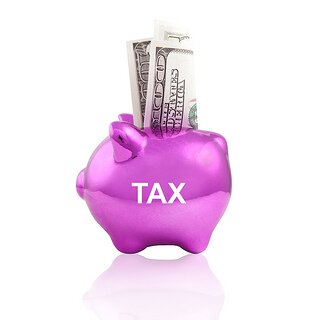Who Knows About Your Self-Employment Tax Tricks?
 Have you found the perfect way to avoid taxes? Before you spend that extra cash, check out the IRS’s top red flags for self-employed individuals. The U.S. government blames nearly $150 billion of its uncollected $345 billion tax debt on people filing Schedule C.
Have you found the perfect way to avoid taxes? Before you spend that extra cash, check out the IRS’s top red flags for self-employed individuals. The U.S. government blames nearly $150 billion of its uncollected $345 billion tax debt on people filing Schedule C.
Income
Companies do not need to report payments under $600 to the IRS. Unfortunately, some self-employed individuals believe not getting a 1099 means the income is not taxable. On the contrary, the IRS expects taxpayers to report all of their income, no matter how little. If the federal revenue officers catch you underreporting income, you will owe back taxes, interest and possibly penalties. The IRS can obtain your banking details and other financial records to see if you’ve been cheating on your taxes. Expect additional scrutiny if you run a cash business, such as part of a taxicab network.
Profit
When you run your own company, your actions must contribute to a profit in at least three out of every five years. Otherwise, the feds believe you are fooling around with a hobby and they will squash your deductions. Don’t think that buying a fishing boat and claiming to be a tour charter will get you out of paying your income taxes.
Home Office Deductions
Who wouldn’t like to write off 10 percent of their housing expenses? The home-office regulation lets you deduct mortgage or rental costs, insurance, utilities and maintenance for the portion of your home used for business. If you live in a 2,000-square-foot house and operate your company out of a 200-square-foot room, you can claim 10 percent of expenses on your taxes. This deduction is a major red flag for the IRS, so make sure the space qualifies as a principal place for customer meetings or administrative operations. Don’t expect keeping a printer in the guest room to qualify as a good tax defense.
Vehicle Expenses
Do you use a car to get to client meetings, to deliver your products or to go on sales calls? The IRS lets self-employed people deduct the cost of driving a vehicle for business purposes. You can choose either the standard rates published annually or the actual expenses you incurred. Either way, you must keep detailed records of mileage, dates and trip purposes. If you deduct actual vehicle expenses, you must also maintain records of your depreciation, repairs, insurance and gas costs. Don’t try to write off expenses for personal usage or standard commuting; these items sound alarms for an IRS inspection.
Travel Costs
Have you become an expert on which hotels have the best beds, which airline networks offer the most perks and which restaurants serve the freshest fare? If your life as a self-employed worker includes travel, you may be able to deduct certain expenses. You must, however, be meeting with clients, attending conferences or traveling for other legitimate business purposes. You cannot take your family to Hawaii and expect the IRS to pay the way. Make sure you support deductions with meal receipts, lodging bills, meeting agendas or minutes, client affidavits and conference brochures. Keep in mind that the IRS does let you combine business with pleasure, but the rules are strict on how to divvy up the expenses.
In the end, the only way to beat the IRS is to use their rules against them. Operate within their guidelines and take advantage of legal ways to reduce your tax burden. Then, you’ll never need to worry about whether your self-employment tax dodges will land you in prison.
About the author: Mary Sutton is a Senior Writer for Fertile Content and a frequent guest contributor to many blogs Google+








